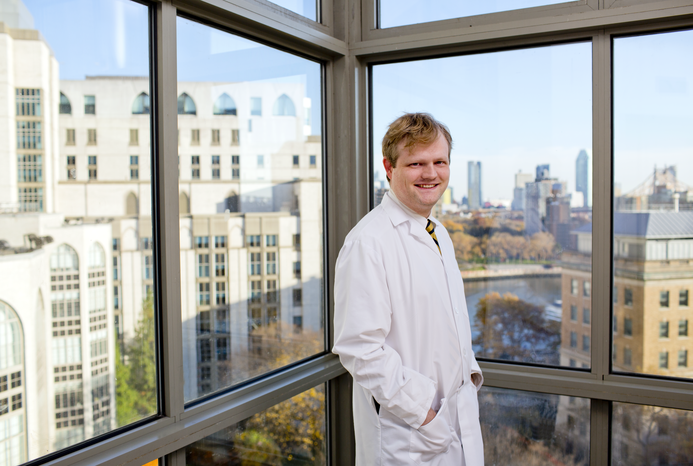Dr. Matthew Greenblatt, an assistant professor of pathology and laboratory medicine at Weill Cornell Medicine, has been awarded the 2019 Pershing Square Sohn Prize for Young Investigators in Cancer Research to support his work studying tumor growth in bone.
Established in 2013, the prize is awarded each year to New York-based scientists pursuing compelling cancer research and provides $200,000 in funding annually for up to three years. The Pershing Square Sohn Cancer Research Alliance supports innovative cancer research and facilitates collaborations between academia and industry in hopes of contributing to finding cures for cancer. Dr. Greenblatt will receive his award at a reception on May 22 in Manhattan.
“I’m really delighted that the resources this prize provides will let us pursue an exciting research project,” said Dr. Greenblatt, who is also a pathologist at NewYork-Presbyterian/Weill Cornell Medical Center. “The award is designed to help you pursue big-picture ideas that may not fall within the scope of traditional National Institutes of Health funding, projects that are ambitious and risky.”
In his lab at Weill Cornell Medicine, Dr. Greenblatt and his team’s research has focused on skeletal stem cells and bone formation. In his new research, funded by the prize, he will investigate how tumors that have spread to bone can take an active role in changing the types of cells in bone, triggering some of those cells to promote bone destruction and fractures. Ultimately, he hopes the effort will lead to the development of new drugs to counteract tumor-driven changes in bone cells and reduce disability and death from fractures linked to tumors.
“This support will enable us to show that our work on stem cells and bone is important for how bone supports the growth of tumors. Tumors that, in turn, impact bone to cause fractures, pain and disability for cancer patients,” Dr. Greenblatt said. “We hope that this will ultimately let us find a real clinical impact for our studies of the cells making up bone.”

